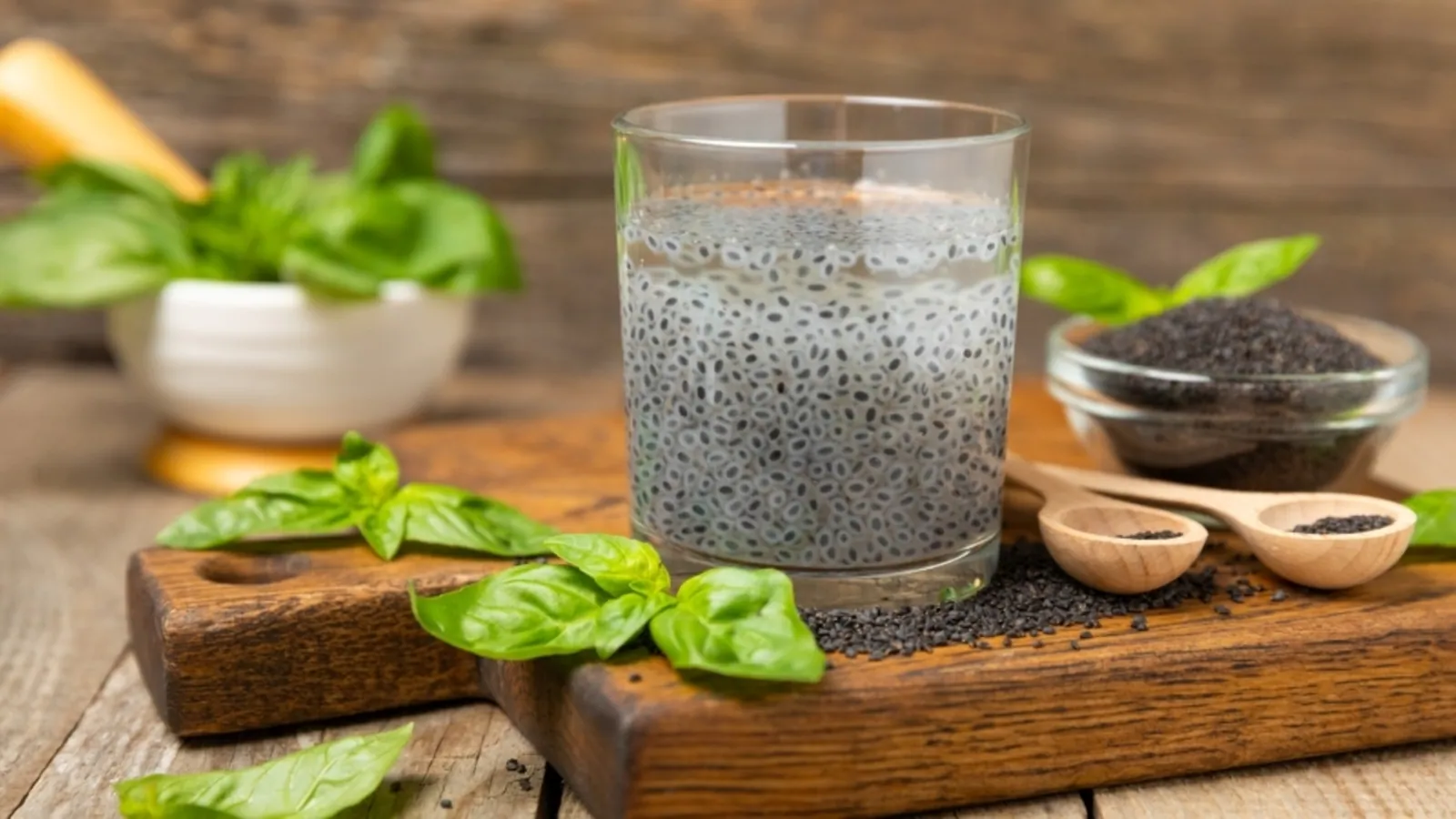Basil Seeds Benefits & Uses | How They Compare to Malanga Seeds

Among the wide variety of superfoods making waves in the health community, basil seeds are gaining popularity due to their impressive nutritional profile and versatile uses. These tiny black seeds, often confused with chia seeds, are derived from the sweet basil plant (Ocimum basilicum), a common herb in kitchens worldwide. While many associate basil only with pesto or Italian cuisine, its seeds offer an entirely different spectrum of benefits that deserve the spotlight.
Though commonly compared to chia, basil seeds stand out in several ways not just in flavor and texture, but in how quickly they absorb water and their unique cooling effects on the body. In traditional medicine systems like Ayurveda and Chinese medicine, they’ve been used for centuries to treat various ailments, ranging from indigestion to skin problems.
What Are Basil Seeds?
Basil seeds, also known as sabja or tukmaria seeds, come from the sweet basil plant and have a hard black outer shell. When soaked in water, they form a gelatinous coating that gives them a tapioca-like consistency. This transformation occurs in minutes, making them ideal for quick additions to drinks, smoothies, and desserts.
They’re flavorless, which makes them incredibly versatile. You can add them to any beverage or dish without affecting the overall taste, but still reap the benefits they offer.
Nutritional Profile
Rich in fiber, basil seeds are a powerhouse of essential nutrients. A single tablespoon of soaked seeds contains:
- Fiber: Aids in digestion and promotes satiety
- Protein: Essential for muscle repair and growth
- Omega-3 Fatty Acids: Supports heart and brain health
- Calcium and Magnesium: Key for bone health
- Iron: Important for blood oxygenation
Low in calories yet high in nutrients, they are a perfect addition for those looking to eat clean without compromising on essential vitamins and minerals.
Health Benefits of Basil Seeds
1. Supports Weight Management
Because basil seeds swell to several times their size when soaked, they help you feel full for longer, reducing the urge to snack between meals. This can significantly support weight loss or maintenance goals. The high fiber content also improves digestion and promotes healthy bowel movements.
2. Regulates Blood Sugar Levels
For people managing type 2 diabetes or pre-diabetic conditions, basil seeds can be a natural way to regulate blood sugar. Their high fiber slows down the metabolism of carbohydrates, leading to more stable blood glucose levels.
3. A Natural Body Coolant
In tropical climates, basil seeds have long been used to cool the body. Mixed into drinks like lemonade or milk, they help reduce body heat. This natural cooling effect makes them a summer staple in countries like India and Thailand.
4. Promotes Skin and Hair Health
Rich in antioxidants and anti-inflammatory properties, basil seeds support overall skin health. They may reduce acne, help clear toxins, and even contribute to stronger hair due to their iron and protein content.
5. Supports Gut Health
The prebiotic nature of their fiber supports the growth of healthy gut bacteria. A balanced gut microbiome is key to better digestion, immunity, and even mental health.
How to Use Basil Seeds
Using basil seeds is simple. All you need to do is soak them in water for about 10–15 minutes. They’ll swell and form a gelatinous coating. After that, they’re ready to be added to:
- Smoothies
- Fruit juices
- Yogurt or parfaits
- Desserts like falooda or puddings
- Lemonades or detox drinks
It’s best not to consume them dry, as they can expand in the throat and potentially cause choking if not soaked first.
Malanga seeds are often discussed in the same context due to their fiber content and health benefits, but they differ greatly in texture and usage. While both can support digestion and gut health, basil seeds are far more versatile when it comes to blending into beverages or cold treats.
Comparing Basil Seeds and Malanga Seeds
Often when exploring high-fiber superfoods, people wonder about the difference between basil seeds and other lesser-known options like malanga seeds. Derived from the malanga root, these seeds are not as widely used, but offer a rich source of complex carbohydrates and resistant starch. They are especially popular in Latin American and Caribbean diets.
Though both have their benefits, basil seeds are lower in calories and fat, making them more suitable for people on weight management or detox diets. Malanga seeds, on the other hand, are better for those needing a denser energy source or dealing with digestive disorders like IBS, due to their anti-inflammatory properties.
Unlike basil seeds, malanga seeds are rarely consumed in beverages or desserts. Instead, they are typically ground into flour or used as a starchy base in cooked dishes.
Where to Find Basil Seeds
These days, basil seeds are widely available at health food stores, Asian markets, and online retailers. They are typically sold raw and unflavored. When buying, always check for purity and make sure there are no added preservatives or flavorings.
Malanga seeds may be harder to find, depending on your location. Specialty stores catering to Caribbean or Latin cuisines may carry them, often in flour form rather than whole seeds.
Precautions and Considerations
While basil seeds are generally safe for most people, there are a few considerations to keep in mind:
- Choking Hazard: Always soak them properly before consumption.
- Allergies: Rare, but possible. Try a small amount first if you’ve never had them.
- Pregnancy and Breastfeeding: Consult a healthcare professional before adding them to your diet in large quantities.
For people with a fiber-sensitive digestive system, it’s best to start small and observe how the body reacts. Malanga seeds carry similar precautions, especially for individuals with food allergies or sensitivities.
Final Thoughts
Tiny but mighty, basil seeds are an underrated superfood with the potential to transform your diet. From aiding digestion to helping you feel fuller longer, their benefits are wide-ranging and backed by centuries of traditional use. Whether you’re a smoothie lover or someone looking for healthy, plant-based nutrition, these seeds are worth exploring.
While malanga seeds offer their own set of health perks, especially for those with specific dietary needs, basil seeds are far more accessible and versatile in daily cooking. Including both in your diet — as appropriate can be a smart, balanced approach to holistic wellness.

